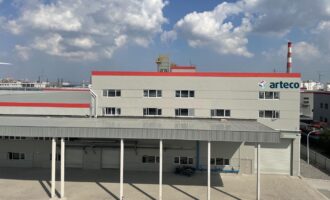
Repsol debuts more sustainable lubricant packaging
Repsol has unveiled its latest innovation in sustainable packaging, Repsol Reciclex, a new line of lubricant containers boasting 60% post-consumer recycled plastic. This initiative marks a significant step in the company’s commitment to environmental sustainability, with the new packaging set to be used across its one litre (1l), four litre (4l), and five litre (5l) lubricant containers. Available in five different colors to distinguish among the product ranges, these containers are designed for engine oils and transmission oils used in cars, motorcycles, and heavy-duty vehicles.
Pablo Giner, director of Polyethylene at Repsol, shared insights into the development process, highlighting the team’s dedication to creating a packaging solution that not only utilises recycled materials but also meets Repsol’s stringent standards for durability and performance. The use of a high-density polyethylene compound, Repsol Reciclex, ensures that the recycled content constitutes 60% of the container’s total weight, effectively reducing the carbon footprint of the packaging by 25% compared to previous models without compromising quality.
Sebastián Mussini, director of Lubricants, Aviation, Asphalt, and Specialized Products at Repsol, emphasised the role of this initiative in bolstering the company’s broader sustainability strategy. “This initiative complements our sustainability strategy, adding to our Master range of carbon footprint-neutral lubricants, which we launched from our Lubricants business,” Mussini said.
Looking ahead, Repsol Lubricants has set an ambitious goal to reduce the carbon footprint of its products by 30% by 2030, relative to 2022 levels. This objective extends to the Chemicals division, which aims to recycle the equivalent of 20% of its polyolefin production by the same year, through the development of sustainable polyolefins like Repsol Reciclex, derived from mechanical, chemical, and bio-based recycling processes.
These efforts are part of Repsol’s comprehensive circular economy strategy, initiated in 2016, which spans the entire value chain from raw material acquisition to product marketing. The company’s international footprint in the Chemicals and Lubricants sectors spans more than 90 countries across five continents, further underlined by strategic investments such as a 40% stake in Bardahl in Mexico) and United Oil in Singapore, and a new polypropylene compound plant in Tangier, Morocco, developed in partnership with Ravago.
Repsol’s move towards more sustainable packaging solutions represents a significant stride in its ongoing journey towards environmental stewardship and decarbonisation, setting a precedent for the industry’s shift towards greener alternatives.









